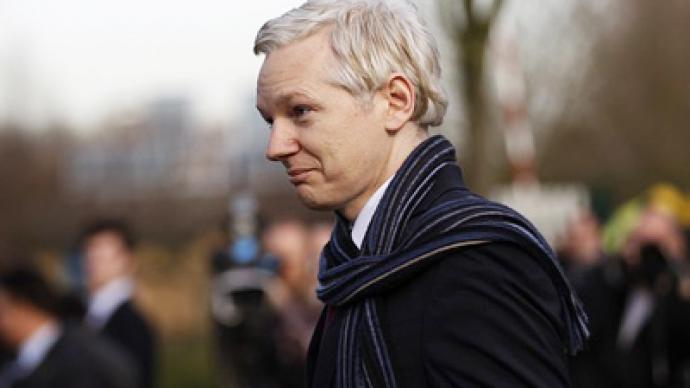UK Judge okays Assange extradition to Sweden

When Julian Assange emerged less than a year ago with a video showing US troops gunning down unarmed civilians and two Reuters journalists, he was lauded as a hero of transparency, now it is a different story.
RT interviewed Assange on the day of Collateral Murder’s release, April 5, 2010. “What keeps people honest and what keeps management over civilization going is we understand how the world actually works,” Assange said. “So the first step in the fourth estate is to get information out to the real world, and the second step is to comment on it and to think about it. We need sources that can get restricted information out to the public.” A nomadic computer expert with a cache of 250,000 classified cables, Assange catapulted to the front page of virtually every newspaper in the country and was quickly branded by both fans and foes. “He’s a cyber terrorist during wartime, he’s guilty of sabotage, espionage, crimes against humanity, he should be killed,” Lt. Col. Ralph Peters told FOX News. His fans branded him a soft-spoken activist with the potential to radically reshape the geopolitical landscape; and voted him Man of the Year in a Time magazine poll. “Our commitment to our sources is not just to protect them, and we have never lost a source, it is not just to publish their material,” Assange told RT’s The Alyona Show on April 5, 2010. “It is to get the maximum political impact possible that is our commitment.” But today it’s the political impact of the leaker—and not the leaks—that has gripped headlines. A UK court ruled to extradite Assange to Sweden to face allegations of sexual misconduct by two Swedish women. Analysts say the allegations against Assange—as well as the way he’s being pursued—reflect not so much his alleged crimes but rather his political impact. “The Obama administration and the CIA, they want to stop WikiLeaks,” said Brian Becker, national coordinator of the ANSWER Coalition. “They're doing all sorts of extraordinary things, leaning on PayPal and MasterCard and other corporations to not accept donations to WikiLeaks.” The once heroic is now hawking mugs, bumper stickers and tee shirts to pay his legal bills. “Who profits from demeaning Julian Assange? Obviously it's the US government who is out to get him and makes no bones about it,” said former CIA analyst Ray McGovern.Assange has even been thrown under the bus by the newspaper that once eagerly used his leaks, the New York Times. Some analysts say Assange and WikiLeaks have been effectively neutralized, consumed by litigation rather than leaks.“The US government wants Assange to be extradited to the US to face charges for the release of those documents,” said Becker. But with Assange facing possible jail time for alleged crimes in Sweden and possible later charges in the US, the future of WikiLeaks as an outlet for whistleblowers and a beacon of transparency also hangs in the balance. If the US wants Julian Assange the “UK Home Secretary would favor US over Sweden” Douglas McNubb, an international extradition attorney told RT.The WikiLeaks founder’s lawyers claimed, if Assange is extradited to the United States he’ll be sent to the detention facility at Guantanamo Bay and could possibly face the death penalty. That’s of course depending on what crimes out of 4,300 existing, the United States may bring against him. As of yet, the US has not charged Assange with any crimes.“If Mr. Assange were charged with espionage for example, and we are just talking hypothetically, that potentially is a death allegeable statute and so he could be charged with espionage. He could face up to life, and in the federal system life is life,” McNubb explained. “We do not have early release or parole in the system.So they could charge him just pursue life charges, or they can also make it death allegeable if they were to do that. From the practical point of view do I think it’s a death allegeable case? No.”













